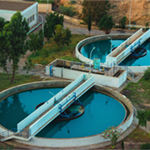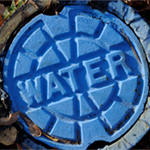Effective sewage management is an essential government responsibility, yet it is often neglected. When sewage systems are not properly managed, the consequences are far-reaching, particularly in countries like South Africa. According to Afriforum, only 13% of the country’s sewage treatment plants meet compliance standards, underscoring the severity of the infrastructure crisis.
Sewage mismanagement is not just an inconvenience; it is a reflection of systemic failures, including municipal mismanagement, insufficient government funding, and infrastructure decline. Beyond the inconvenience, it presents significant health risks, including the spread of cholera and other life-threatening diseases. Moreover, the environmental consequences are devastating—polluting ecosystems, harming wildlife, and even affecting cultural heritage sites like the Cradle of Humankind.
In this blog, we explore the scope of the crisis, alternative solutions, and how you can mitigate its impact on your daily life.
1.Infrastructure Decline: The Unseen Crisis
South Africa’s sewage crisis is not a new issue, but it requires immediate government intervention.
The Afriforum Blue and Green Report 2024, which examined treated sewage from 142 plants across various municipalities, highlights the ongoing challenges faced by the sewage management sector—non-compliance and deteriorating infrastructure in municipal wastewater treatment plants. Alarmingly, more than 50,000 liters of untreated sewage enter South Africa’s rivers every second, with 81% of sewage discharges failing to meet the required treatment standards.
This issue disproportionately impacts rural communities, particularly in coastal areas where sewage treatment facilities are either non-existent or severely underfunded. In such regions, residents often rely on makeshift solutions such as septic tanks and pit latrines—both of which pose significant safety risks and can result in accidents.
South Africa’s waste management system faces two major challenges:
1. the poor condition of existing infrastructure and
2. the lack of sufficient facilities to meet growing demand.
The combination of these factors leaves many communities vulnerable to inadequate sewage services.
2. The Root Causes: Mismanagement and Lack of Investment
The decline in South Africa’s sewage infrastructure is largely due to chronic underinvestment, mismanagement, and non-compliance with environmental regulations. Outdated infrastructure in many municipal plants presents a significant barrier to the adoption of modern, renewable energy solutions. The resulting operational overloads further compromise efficiency and effectiveness.
To address these problems, South Africa needs substantial investment in upgrading infrastructure:
Better enforcement of environmental regulations, and improved municipal water treatment policies
However, a major contributing factor to the crisis is the rapid pace of urbanisation, which places immense pressure on already overstretched and poorly maintained systems.
3. Public Health and Environmental Risks
The impact of the sewage crisis extends far beyond poor service delivery—it presents a direct threat to human health, the environment, and even food security. Contaminated water is a breeding ground for diseases such as cholera, and polluted water sources can infiltrate agricultural irrigation systems, potentially contaminating food crops.
Even urban areas are at risk, as food grown using contaminated water may harbor dangerous pathogens. As a result, the general population is vulnerable to infections from bacteria, viruses, and parasites, leading to symptoms ranging from nausea and fever to more severe illnesses. In many cases, if left untreated, these diseases can be fatal.
Given that many conditions linked to sewage-contaminated water can be fatal if left untreated, seek medical attention immediately if you suspect your health or that of a loved one might be compromised.
4. Government Efforts and the Continuing Crisis
In response to the escalating sewage crisis, various government levels have initiated measures to improve infrastructure maintenance, introduce remedial policies, and explore partnerships with the private sector. Despite these efforts, the crisis continues to worsen.
In 2023, Pretoria suffered one of its worst cholera outbreaks in 15 years, while Johannesburg’s wastewater mismanagement caused damage to the Cradle of Humankind, a UNESCO World Heritage site.
According to the Daily Maverick, the latter crisis arose due to mismanagement from the City of Johannesburg municipality causing sewage to leak into the Vaal River System, severely impacting surrounding areas. Residential areas near Hartbeespoort Dam were also affected.
Despite repeated government maintenance notices issued to the Mogale City treatment plant since 2019, culminating in criminal charges filed against the municipality in August 2023, the underlying issues persist. This lack of effective remediation highlights the ongoing challenges within the municipal sector, driving increased demand for private-sector alternatives.
The Role of the Private Sector in Waste Management
As the government struggles to address the crisis, more South Africans are turning to the private sector for viable waste management solutions. Just as many people have sought alternative power sources like solar energy to bypass Eskom’s challenges, more communities are exploring privatized waste management as a sustainable alternative.
Innovative solutions, such as eco-toilets, decentralised wastewater systems, and biofiltration, are gaining momentum as they offer effective waste management solutions that do not rely on government infrastructure. Companies like Bio Sewage Systems are at the forefront of these efforts, offering tailored services to address the unique needs of communities, including those in rural and underserved areas
6. Private Solutions for a Cleaner Future
While the ideal solution would be for the government to improve infrastructure and enforce regulations, the reality is that the public sector is ill-equipped to resolve the sewage crisis in the short term. As a result, private sector investment in alternative waste management solutions is becoming increasingly important.
To manage waste effectively in 2025, Bio Sewage Systems recommends that individuals take simple yet impactful steps, including:
-
-
- Be mindful of what you flush—only human waste and toilet paper should be flushed to ensure the smooth operation of sewage systems. Avoid flushing wipes, sanitary products, or any non – biodegradable materials that can block pipes and strain sewage systems
- Use water responsibly—fix leaks and use water-efficient appliances as excessive water consumption can overwhelm sewage systems, leading to sewage overflows.
- Avoid pouring cooking oils, fats and grease down the drain, as they can clog pipes and exacerbate waste management challenges.
- Diverting rainwater to planted areas or collection systems prevents runoff and minimises the risk of urban sewage overflows.
- Properly maintain septic and cesspool systems—regular inspections and upgrades to advanced treatment systems can significantly reduce system failure risks.
- Consider alternative waste management systems that can reduce the reliance on municipal systems and promote sustainable waste management.
- Educate others about responsible waste management practices.
-
For those unsure where to begin, professional services like Bio Sewage Systems can provide the expertise and infrastructure needed to navigate the complexities of waste management, particularly for those in rural or coastal areas without access to municipal sewage services.
Conclusion: Taking control of your Waste Management in 2025
The sewage crisis in South Africa is a pressing issue that affects the health, safety, and well-being of all citizens and residents. It is not just a matter of inconvenience—it is a crisis that has far-reaching consequences for public health, the environment, and even historical sites.
While government efforts are ongoing, the most practical solution for many South Africans is to turn to the private sector for alternative waste management solutions. By making informed choices and investing in sustainable systems, you can protect yourself, your community, and the environment.
Protect yourself and your loved ones from the ongoing sewage crisis—take proactive steps today by exploring the innovative wastewater solutions provided by Bio Sewage Systems, ensuring a cleaner, safer, and more sustainable future.






